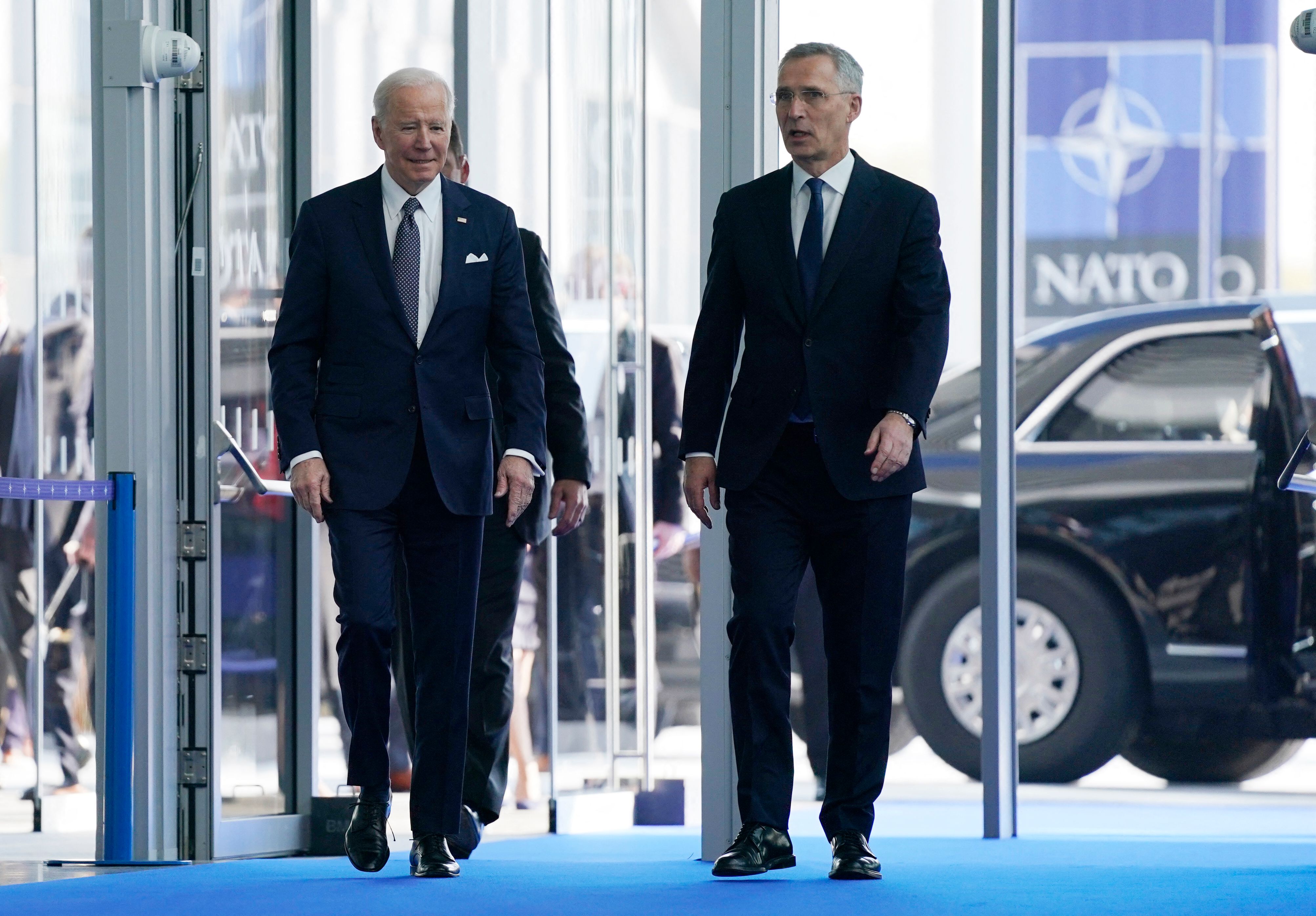Biden’s Role in NATO

Biden nato – President Biden’s presidency has brought significant changes to NATO’s operations and future direction. His initiatives and policies have aimed to strengthen the alliance and enhance transatlantic cooperation.
President Biden’s recent remarks at the NATO summit underscore his commitment to strengthening the transatlantic alliance. His call for unity and collective defense resonates amidst growing concerns over Russia’s aggression. Stay up-to-date on the latest developments with biden news today.
Biden’s leadership in navigating the complex geopolitical landscape will continue to shape the future of NATO and its role in global security.
Biden’s Initiatives and Policies Impacting NATO
Biden has prioritized the following initiatives to impact NATO’s operations:
- Increased Defense Spending: Biden has called on NATO members to increase their defense spending to meet the challenges posed by Russia and other threats.
- Enhanced Cyber Security Cooperation: Biden has emphasized the importance of cyber security and has proposed initiatives to strengthen NATO’s cyber defenses.
- Recommitment to Article 5: Biden has reaffirmed the United States’ commitment to Article 5 of the NATO treaty, which states that an attack on one member is an attack on all.
Biden’s Efforts to Strengthen Transatlantic Cooperation, Biden nato
Biden has also made significant efforts to strengthen transatlantic cooperation within NATO:
- Increased Diplomatic Engagement: Biden has met with NATO leaders and has engaged in regular consultations to strengthen the alliance.
- Support for Ukraine: Biden has provided strong support for Ukraine in its conflict with Russia, which has been a major challenge for NATO.
- New Strategic Concept: Biden has supported the development of a new NATO Strategic Concept, which will guide the alliance’s future direction.
NATO’s Response to Biden’s Presidency: Biden Nato

NATO has undergone a significant transformation in response to Biden’s presidency. The alliance has embraced a more assertive stance against Russia, increased its focus on cyber and hybrid warfare, and expanded its partnerships beyond the Euro-Atlantic region.
Challenges and Opportunities
Biden’s presidency has presented both challenges and opportunities for NATO. On the one hand, the alliance has been confronted with a more assertive Russia and the rise of new threats, such as cyber and hybrid warfare. On the other hand, Biden’s commitment to multilateralism and his focus on strengthening NATO’s partnerships have created opportunities for the alliance to adapt and respond to these challenges.
Impact on Strategic Direction
Biden’s foreign policy has had a significant impact on NATO’s strategic direction. The alliance has adopted a more forward-looking approach, with a focus on deterrence and defense against emerging threats. Biden’s emphasis on diplomacy and dialogue has also helped to create a more stable and predictable security environment in Europe.
The Future of NATO under Biden’s Presidency
Biden’s presidency marks a new chapter in NATO’s history. His administration has pledged to revitalize the alliance, strengthen its collective defense capabilities, and address emerging threats. Several key factors will shape NATO’s evolution under Biden’s leadership, including the changing global security landscape, the rise of new technologies, and the need to adapt to a more assertive Russia and China.
NATO’s Strategic Reassessment
In response to the evolving security environment, NATO has launched a strategic reassessment process to update its strategy and adapt to future challenges. The reassessment will consider a wide range of issues, including the future of deterrence and defense, the role of new technologies, and the need to strengthen resilience against hybrid and cyber threats.
Enhanced Collective Defense
Biden has emphasized the importance of strengthening NATO’s collective defense capabilities. The alliance is investing in new technologies, such as artificial intelligence and cyber defenses, to enhance its ability to deter and respond to potential threats. NATO is also increasing its military presence in Eastern Europe and the Baltic states to reassure allies and deter Russian aggression.
Addressing Emerging Threats
NATO is also adapting to address emerging threats, such as climate change, terrorism, and the proliferation of weapons of mass destruction. The alliance is working to develop new strategies and capabilities to address these challenges and ensure the security of its member states.
Implications of Biden’s Presidency for NATO’s Future
Biden’s presidency is likely to have a significant impact on NATO’s future. The following table summarizes the potential implications:
| Area | Potential Implications |
|—|—|
| Collective Defense | Strengthened collective defense capabilities, increased military presence in Eastern Europe, enhanced cyber and hybrid threat resilience |
| Strategic Reassessment | Updated strategy to address evolving security landscape, focus on new technologies and emerging threats |
| Enlargement | Potential expansion of NATO membership to include new members, such as Ukraine and Georgia |
| Partnerships | Strengthened partnerships with non-NATO countries, such as Australia, Japan, and South Korea |
| Global Security | Enhanced cooperation with other international organizations, such as the United Nations and the European Union |
Biden’s commitment to NATO has been unwavering, as evidenced by his recent meeting with the alliance’s Secretary-General Jens Stoltenberg. In this meeting, Biden reaffirmed the United States’ commitment to Article 5 of the NATO treaty, which states that an attack on one member is an attack on all.
Biden’s strong stance on NATO has been praised by many, including Mark Warner , a Democratic senator from Virginia who is a strong supporter of the alliance. Warner has said that Biden’s leadership on NATO is “essential to ensuring the security of Europe and the United States.”